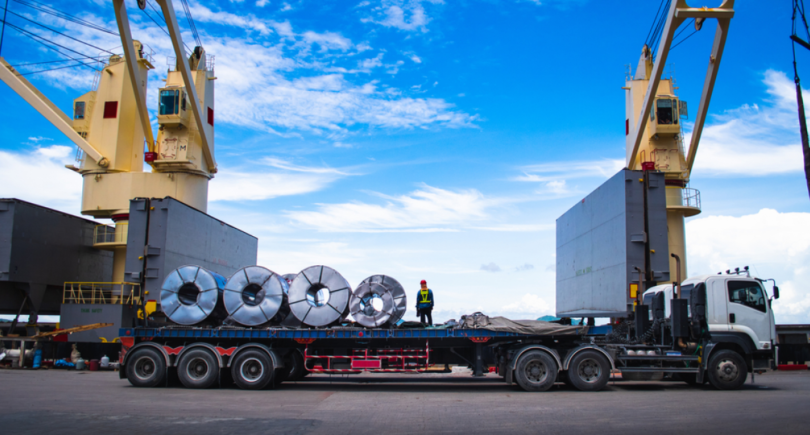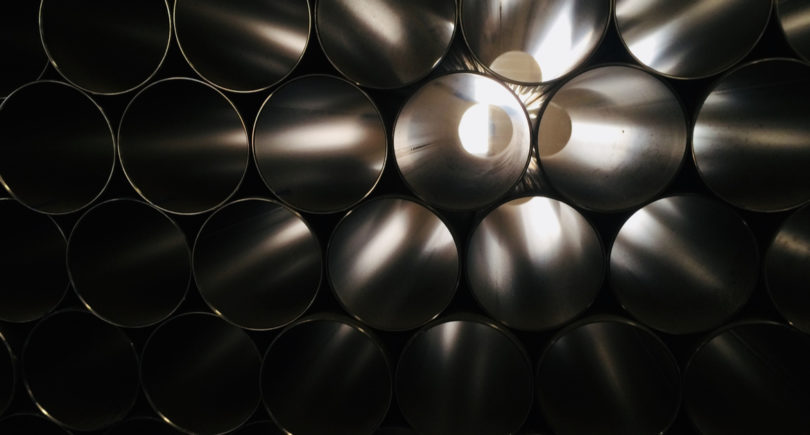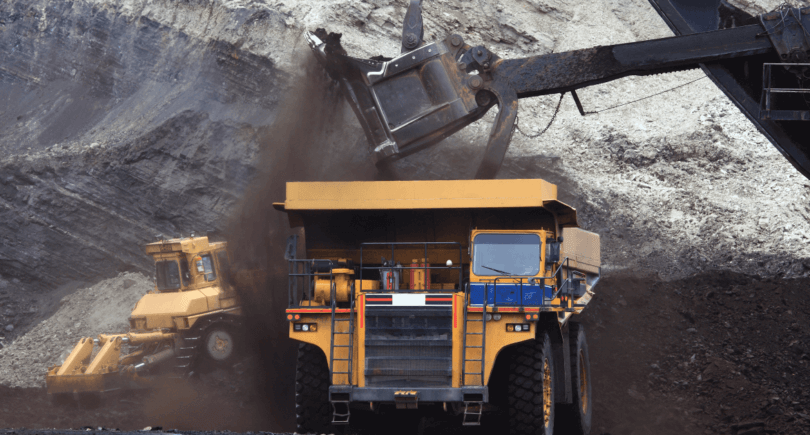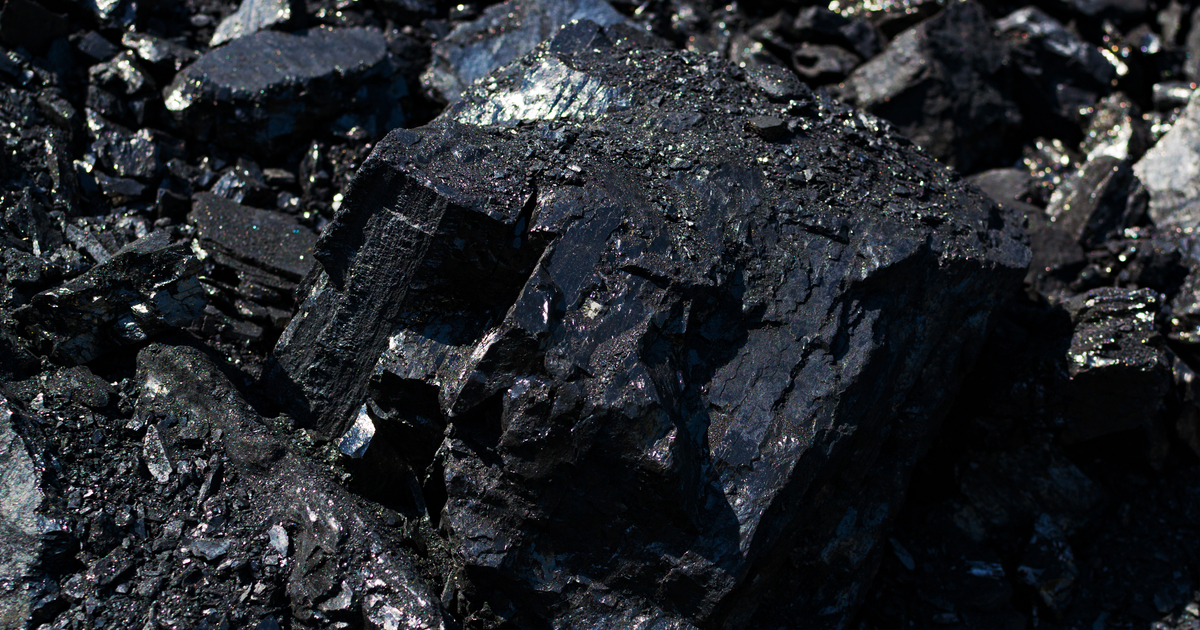
News Global Market coking coal prices 3086 02 October 2023
Quotations of raw materials in Australia for the month increased to $333/t, and in China – to $280/t
Quotations of coking coal in Australia (FOB Australia), according to S&P Global, for the week of September 21-28, 2023, increased by 2.7%, or $8.7/t, compared to the previous week – up to $333/t. In general, since the beginning of September, the indicator has increased by 24.2%. As of August 31, 2023, raw material prices were $268/t FOB Australia.
Coking coal in China (CFR China) was offered to consumers at $280/t as of September 28, 2023, compared to $273/t on September 21. At the same time, on August 31, raw material quotations were at the level of $250/t.
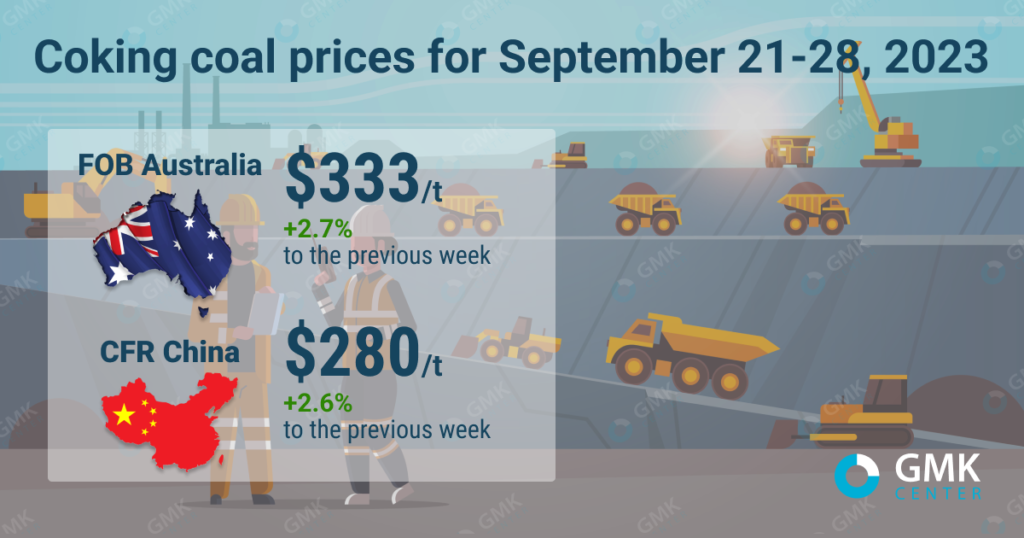
Over the past week, prices for coking coal showed steady growth. The corresponding trend has been observed since the beginning of September, as well as in other raw materials markets, in particular, in the iron ore market. Active demand in China and India during September stimulated price growth.
The increase in prices for coking coal is explained by the limited supply of Australian high-quality raw materials. According to analysts’ forecasts, such a trend will be observed in October as well, which will support prices at high levels. The long-term outlook also points to further growth. At least until December 2023, stable demand and low availability will stimulate coking coal prices. At the same time, one of the Australian traders is not sure about the further increase in prices, as they have currently reached approximately the same level as coke prices.
Among the factors that influenced the stable growth of coking coal quotes in September is also China’s policy on safety inspections at domestic coal mines. This triggered the closure or suspension of work at some coal mines, which, in turn, forced local metallurgists to order imported raw materials, particularly Australian.
The market expects that after the Chinese holidays, which end in the second decade of October, the Chinese government may relax safety inspections at coal mines. This is likely to reduce demand for Australian raw materials and provide the impetus for a weakening of the growth trend.
September is marked by a sharp rise in commodity prices, while steel prices remain low due to weak demand from consumer staples, which was expected to be higher. Thus, every upward movement of raw material prices reduces the margins of steelmakers and threatens to reduce or suspend capacities.
The main reason for low steel prices is oversupply in the Chinese market. Since the country’s government has still not introduced restrictions on steel production, the country’s steelmakers continue to increase the production of steel products. At the same time, domestic demand for steel does not correspond to production volumes, and part of the products are shipped for export at lower prices than the world average.
In the short term, coking coal prices may decline slightly, as Chinese steelmakers have completed pre-holiday stockpiling, and the first decade of October will be characterized by low activity in the Chinese market amid the holidays. But long-term expectations indicate that high-quality coking coal will be in short supply, supporting prices at least until the end of the year. In particular, there are still no offers of raw materials for delivery in November.
As GMK Center reported earlier, January futures for iron ore on the Dalian Commodity Exchange during September 22-29, 2023, decreased by 2.5% compared to the previous week – to 851.5 yuan/t ($116.64/t). At the same time, during September, quotations increased and reached the level of $123.4/t. The month is characterized by an increase in demand among Chinese steelmakers and active replenishment of stocks before the holidays in China. Prices have so far fallen as demand from Chinese consumers has slowed amid the festive period.


